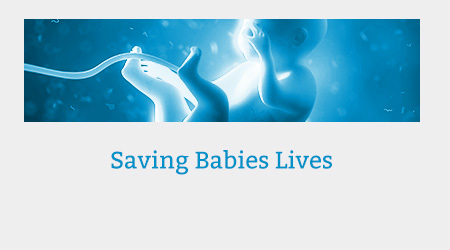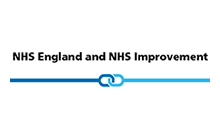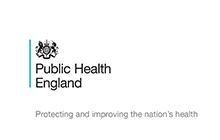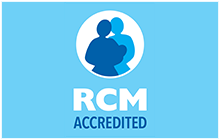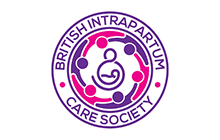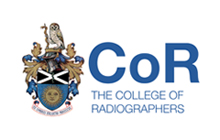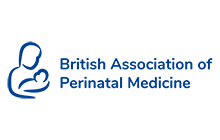About the Saving Babies’ Lives Care Bundle programme
Aims and ambitions
The Saving Babies’ Lives Care Bundle (SBLCB) elearning programme has been developed to support the implementation of SBLCB Version 3 in maternity units across the NHS, published in June 2023. SBLCBv3 has been produced to build on the achievements of version 2. It aims to provide detailed information for providers and commissioners of maternity care on how to reduce perinatal mortality across England. The 3rd version of the care bundle brings together 6 elements of care that are widely recognised as evidence-based and/or best practice to improve care and outcome for women and their babies, these are:
- Reducing smoking in pregnancy and A SmokeFree Pregnancy
- Fetal Growth: Risk assessment, surveillance, and management
- Raising awareness of reduced fetal movement (RFM)
- Effective fetal monitoring during labour
- Prediction, prevention and perinatal optimisation of preterm birth
- Management of pre-existing diabetes in pregnancy for women with Type 1 or Type 2 diabetes (new element)
An additional elearning course that focuses on obstetric ultrasound is also available.
- Ultrasound: Saving Babies Lives (This is a supplementary piece of eLearning and is optional. Note: Currently aligns to SBLCB v2)
The programme is aimed at midwives, obstetricians , perinatal/neonatal teams and sonographers.
Learners will benefit through improved midwifery, perinatal/neonatal and obstetric knowledge and skills to implement each element of the Saving Babies’ Lives Care Bundle Version 3, improving safety for women and their babies across England.
Programme content
The programme consists of 6 sessions, each one relating to an individual element of the Saving Babies’ Lives Care Bundle Version 3.
Content focuses on:
-
Element 1: Very brief advice on smoking for pregnant woman and A SmokeFree Pregnancy
Element 1: Very brief advice on smoking for pregnant woman and A SmokeFree Pregnancy
These two sessions focus on the delivery of very brief advice (VBA) on smoking to pregnant women, including carbon monoxide (CO) screening. The National Institute for Health and Care Excellence (NICE) guidance recommends that all women are CO screened at antenatal appointments, with those having elevated levels referred for specialist support to stop smoking. This session is aimed at helping members of the midwifery team to deliver VBA on smoking to their patients.
By the end of the session learners will be able to:
- describe the main effects of smoking on the health of mother and baby
- understand the patterns and prevalence of smoking among pregnant women
- provide an overview of VBA (ask, advise, act) and where this fits into the care pathway
- establish smoking status including CO screening (ask)
- Advise women on the best way of stopping smoking or managing their exposure to smoke (advise)
- support women to quit or manage their exposure to smoke (act)
- deal with issues as they arise
- complete a short assessment to consolidate your knowledge
Duration: 60 minutes
-
Element 2: Detection and surveillance of fetal growth restriction
Element 2: Detection and surveillance of fetal growth restriction
This session is designed to accompany element 2 of the SBLCBv3. It will provide an understanding of the core principles of the stillbirth risks associated with FGR and the element’s suggested measures to reduce this by improving detection and management.
By the end of the session learners will be able to:
- describe different features of early and late onset FGR
- explain how pregnancies are assessed for the risk of FGR using risk factors and findings in pregnancy
- describe the different risk surveillance strategies once pregnancies have been risk assessed
- describe how fetal growth and wellbeing can be monitored when early and late FGR have been diagnosed
- discuss intervention in the form of early delivery for fetal growth restriction
Prerequisites:
Before commencing this session learners should have:
- read ‘Element 2′ of the Saving Babies’ Lives Care Bundle Version 3, including appendices C and D [1]
- familiarity with symphysis-fundal height (FH) measurement and antenatal care aimed at FGR detection
- an understanding of how ultrasound can be used to assess fetal size
- an understanding of what is meant by estimated fetal weight centile and birth weight centile
Duration: 30 minutes
-
Element 3: Reduced fetal movements
Element 3: Reduced fetal movements
This session will provide maternity healthcare professionals with knowledge to understand the association between (RFM) and late stillbirth (greater to or equal to 28 weeks gestation) and information about the impact of different management strategies.
By the end of the session learners will be able to:
- describe the association between reduced RFM and late stillbirth by understanding physiology and pathophysiology
- demonstrate awareness of evidence about the contribution of suboptimal care of RFM to late stillbirth
- give information to women about normal patterns of fetal movements and when they should present to maternity care with RFM
- describe the recommended management plan for women presenting with RFM after 28 weeks gestation
- evaluate care given for RFM from a multidisciplinary perspective
Prerequisites:
Before commencing this session learners should have knowledge of:
- the standard pathway (recommended by NICE) for antenatal care in low risk and high risk pregnancies
- usual maternal perception of RFM
- the interpretation of antenatal cardiotocography (CTG) and late pregnancy ultrasound scanning for fetal biometry, liquor volume and umbilical artery Doppler with reference to growth centiles
Duration: 20 minutes
-
Element 4: Effective fetal monitoring during labour
Element 4: Effective fetal monitoring during labour
This session provides an introduction to key principles of risk assessment at the onset of labour in order to determine the optimum method of fetal monitoring in labour. The session also addresses the reassessment of risk factors and use of ‘fresh eyes’ as an opportunity for risk assessment at regular intervals in labour.
By the end of this session learners should be able to:
- describe a risk assessment at the onset of labour to decide the recommended mode of fetal monitoring in labour
- explain the significance of regular reassessments of risk in labour
- identify the risk factors that appear in labour and recommend continuous fetal monitoring in labour
- identify the factors to consider when CTG changes are noted in labour
- explain the role of buddy system/‘fresh eyes’ in intrapartum fetal monitoring
Prerequisites:
Before commencing this session learners should have:
- completed annual training in fetal monitoring within their maternity unit
- basic knowledge of fetal physiology
- knowledge of local guideline for CTG interpretation
Duration: 20 minutes
-
Element 5: Prediction, prevention and perinatal optimisation of preterm birth
Element 5: Prediction, prevention and perinatal optimisation of preterm birth
This session provides guidance on the effective prediction, prevention and preparation for preterm birth, which are all key aspects of the Saving Babies’ Lives Care Bundle version 3.
By the end of the session learners will be able to:
- demonstrate awareness of the incidence, causes and consequences of preterm birth
- describe the ways in which effective prediction and prevention can be incorporated into clinical practice
- explain how to optimise perinatal care for women and their babies at the time of preterm birth
Prerequisites:
Before commencing this session learners should have:
- Basic knowledge of the causes and management of preterm birth
Aiming to reduce mortality and morbidity from preterm births by focussing on 3 intervention: prediction and prevention of preterm birth and perinatal optimisation when preterm birth is unavoidable.
Duration: 20 minutes
-
Element 6: Diabetic ketoacidosis (DKA) in pregnancy
Element 6: Diabetic ketoacidosis (DKA) in pregnancy
This session provides guidance on ‘Diabetes in Pregnancy’, the newly added element 6 in the Saving Babies’ Lives Care Bundle version 3. It is designed to focus on DKA because this has been highlighted as an important cause of maternal death in the 2022 MBRRACE report.
By the end of the session learners will be able to:
- understand the precipitating factors of DKA in pregnancy
- diagnose DKA in pregnancy by recognising and acting on the acute symptoms and signs
- instigate immediate management of this emergency
- arrange appropriate initial investigations for these women
- counsel women at risk of this before it happens so that they know when to seek urgent help
Prerequisites:
Before commencing this session learners should have:
- basic knowledge of diabetes in pregnancy, particularly type 1 diabetes
- basic knowledge of carbohydrate metabolism and the role of insulin in this process
Duration: 50 minutes
-
Ultrasound: Saving Babies’ Lives course
Ultrasound: Saving Babies’ Lives course
Please note: These eLearning sessions introduce and explain the ultrasound components of the Saving Babies’ Lives Care Bundle Version 2. Refer to the Version 3 document for the most up to date information.
- The 1st session, Introduction, explores FGR and associated risks. It also provides an overview of how to evaluate fetal biometry and estimated fetal weight charts.
- The 2nd session, Uterine Artery Doppler Assessment, describes the technique for assessing uterine arteries using Doppler. Appropriate equipment settings will be discussed along with how to interpret and report waveforms.
- The 3rd session, Middle Cerebral Artery Doppler, describes the technique for assessing middle cerebral arteries using Doppler.
- The 4th session, Cervical Length Assessment, demonstrates appropriate equipment settings to optimise the image and discuss how to report cervical length.
More information
The SBLCBv3 programme aims to improve safety for mothers and babies by improving the knowledge, skills and confidence of midwives and obstetricians by providing a practical approach to the following:
- Reducing smoking in pregnancy by following NICE guidance.
- Identifying women with pregnancies at highest risk of FGR.
- Encouraging awareness among pregnant women of the importance of detecting and reporting RFM and to appropriately care for and manage women who report RFM
- Understand the principles of risk assessment at the onset of labour in order to determine the optimum method of fetal monitoring in labour
- Aiming to reduce preterm births by focussing on 3 intervention areas to improve outcomes which are prediction and prevention of preterm birth and better preparation when preterm birth is unavoidable.
- Understanding the multidisciplinary team pathways and an intensified focus on glucose management within maternity settings, in line with the NHS Long Term Plan and NICE guidance.
The NHS has worked hard towards the national maternity safety ambition, to halve rates of perinatal mortality from 2010 to 2025, and achieve a 20% reduction by 2020 (DHSC 2017). ONS data showed a 25% reduction in stillbirths in 2020, with the rate rising to 20% in 2021 with the onset of the COVID-19 pandemic. While significant achievements have been made in the past few years, more recent data show there is more to do to achieve the Ambition in 2025.
Meet the team

Karen Thirsk
Senior Project Manager, Maternity Programme Team NHS England
Rachel Vollans
Project coordinator, Maternity Programme Team NHS England
Tony Kelly
National Clinical Advisor for National Maternity and Neonatal Safety Improvement Programme and Leadership and Culture Programme
Karole Smith
Programme Manager - Technology Enhanced Learning, NHS England
Paul Tingle
Senior Project Manager - Technology Enhanced Learning, NHS England
Tracy Watkins
Lead Learning Designer - Technology Enhanced Learning, NHS England
Roger Ellison
Learning Designer - Technology Enhanced Learning, NHS England Louise Garrahan Marketing and Communications Officer - Technology Enhanced Learning, NHS England
Louise Garrahan
Marketing and Communications Officer - Technology Enhanced Learning, NHS England
Authors
Element 1: Reducing smoking in pregnancy and A SmokeFree Pregnancy
Jo Locker, Senior Tobacco Control Programme Manager, Alcohol, Drugs, Tobacco and Justice Division, Public Health England
Paul Cilia La Corte, Senior Programme Manager – Prevention, NHS England
Element 2: Detection and surveillance of fetal growth restriction
Ed Johnstone, Consultant Obstetrician, Professor in Obstetrics and Fetal Medicine, St Mary’s Hospital, University of Manchester
Katie Morris, Consultant Obstetrician, Reader Maternal Fetal Medicine, Birmingham Women’s and Children’s Hospital, University of Birmingham
Suzanne Thomas, SGA Specialist Midwife, Tommy’s Research Centre, University of Manchester
Element 3: Reduced fetal movements
Alexander Heazell, Professor of Obstetrics and Director of the Tommy’s Research Centre, University of Manchester
Libby Baraz, Midwifery Sister, Royal United Hospital Bath NHS Foundation Trust
Updates provided by:
Wendy Randall, Head of Midwifery at West Hertfordshire Teaching Hospitals NHS Trust
Element 4: Effective continuous fetal monitoring during labour
Louise Page, Consultant Obstetrician and Gynaecologist, Chelsea and Westminster Hospital NHS Foundation Trust, British Intrapartum Care Society President
Rachna Bahl, Consultant Obstetrician, St. Michael’s Hospital, University Hospitals Bristol NHS Trust
Natalie Carter, Consultant Midwife, Chelsea and Westminster NHS Foundation Trust
Updates provided by:
Wendy Randall, Head of Midwifery at West Hertfordshire Teaching Hospitals NHS Trust
Donald Peebles, University College London hospitals NHS Foundation trust
Element 5: Reducing preterm birth
Nigel Simpson, Senior Clinical Lecturer and Honorary Consultant in Obstetrics and Gynaecology at the University of Leeds and Leeds Teaching Hospitals NHS Trust
Elizabeth Bonney, Consultant Obstetrician, Leeds Teaching Hospitals NHS Trust
Updates provided by:
Tony Kelly, National Clinical Advisor for National Maternity and Neonatal Safety Improvement Programme and Leadership and Culture Programme
Sarah Bates, Consultant Paediatrician & Neonatologist, Great Western Hospitals NHS Foundation Trust, National Quality Lead for British Association Perinatal Medicine
Element 6: Diabetic ketoacidosis (DKA) in pregnancy
Sarah Winfield, Consultant Obstetrician with a special interest in Maternal Medicine at the Mid-Yorkshire Teaching NHS Trust. Regional Lead Obstetrician for the North East and Yorkshire, NHS England
Ultrasound: Saving Babies Lives
Gill Harrison, Professional office for Ultrasound, The College of Radiographers
Ellen Dyer, Diagnostic Radiographer, Cambridge University Hospitals NHS Foundation Trust
Trish Chudleigh, Research Sonographer, University of Cambridge and Cambridge University Hospitals NHS Foundation TrustSonia Cumming, Midwife Sonographer, Cambridge University Hospitals NHS Foundation Trust
How to access
To access any elfh programme, you will need an elfh account. If you do not have one, then you can register by selecting the Register button below.
To view the Saving Babies’ Lives Care Bundle programme, select the View button below. If you already have an account with elfh, you will also be able to login and enrol on the programme from the View button.
If you already have an account with elfh, then you can enrol on to the Saving Babies’ Lives Care Bundle programme by logging in to the elfh Hub, selecting My Account > Enrolment and selecting the programme. You can then access the programme immediately in the My e-Learning section.
NHS healthcare staff in England – ESR
The Saving Babies’ Lives Care Bundle programme is also available to NHS healthcare staff via the Electronic Staff Record (ESR). Accessing this e-learning via ESR means that your completions will transfer with you throughout your NHS career
Not an NHS organisation?
If you are not an NHS health or care organisation and therefore do not qualify for free access elfh Hub, you may be able to access the service by creating an OpenAthens account.
To check whether or not you qualify for free access via OpenAthens, you can view the eligibility criteria and register on the ‘OpenAthens’ portal.
Registering large numbers of users
If you are a HR, IT or Practice Manager and would like to register and enrol large numbers of staff within your organisation for access onto the Saving Babies’ Lives Care Bundle programme, please contact elfh directly.
Organisations wishing to use their own LMS
For HR departments wanting to know more about gaining access to courses using an existing Learning Management System please contact elfh directly to express interest.
More information
Please select the following link for more information on how to use the elfh Hub.
Select here for more information on the authorisations process to run reports on the learning activity of staff.
Select the following link for more information about CPD points.



